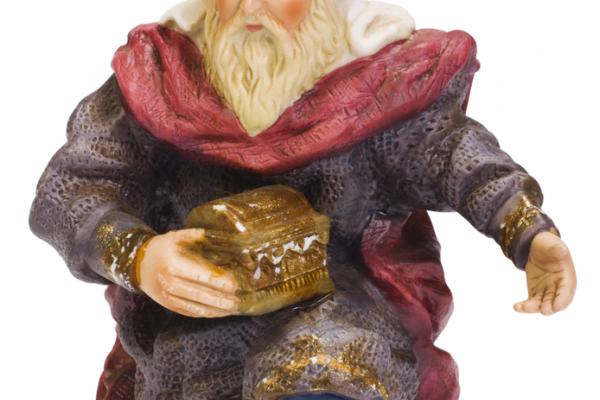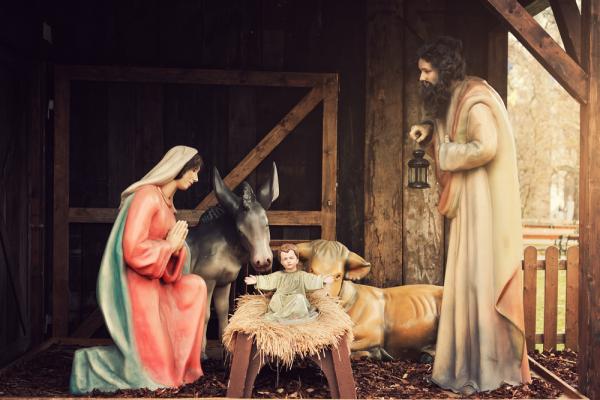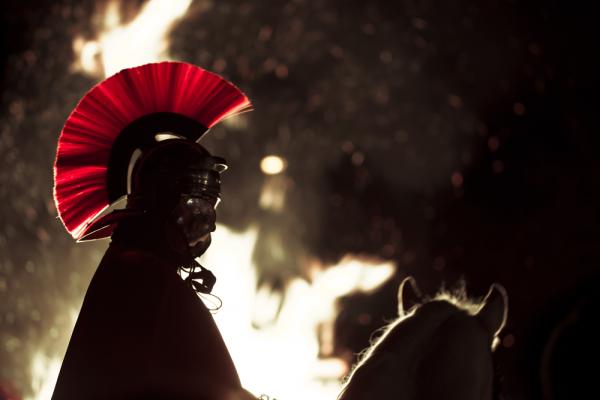I know. We’re all a little fatigued about the Duck Dynasty and freedom of speech controversy. As many have pointed out, everyone has been free during this controversy. Phil Robertson was free to make his statement to GQ. GQ was free to publish it. A&E was free to suspend Robertson for making comments that it thought hurt its image. And, despite that justification, A&E is free to air Duck Dynasty marathons on Dec. 24 and 25. (Yes, on Christmas Day you can watch 12 1/2 hours of Duck Dynasty. A&E is taking this controversy straight to the bank!) We are free to watch, or to not watch, future episodes of Duck Dynasty. We are all free to take sides. And bloggers are freely adding to our Duck Dynasty fatigue by writing endless blog posts.
This blogger asks for your forgiveness in writing yet another post that adds to our fatigue. So I’ll keep this brief.
There is something about freedom that we are missing in this debate, especially from a Christian point of view. When it comes to freedom, we want to fight for the freedom to do or say whatever we want. This is the highest point of freedom in the United States. It’s a freedom that is based on freedom for individual rights. It’s a freedom that says that I should have the right to say whatever I want without any negative consequences.
BETHLEHEM, West Bank — Two weeks before Christmas, one of the most powerful storms to hit the Middle East in a century dumped several inches of snow on the hills of Bethlehem.
In addition to shuttering schools and businesses, the storm caused runoff to trickle down the walls of the Church of the Nativity, built above the traditional birthplace of Jesus.
Fortunately, the water damage was relatively minor, church officials say, thanks to a rare cooperative venture already underway to repair the basilica’s roof, leaky windows and old wooden beams, some 1,500 years old.
“There were still leaks, but thanks to the scaffolding that was erected for the restoration work, the damage was controlled,” said the Rev. Pierbattista Pizzaballa, custodian of the Holy Land for the Roman Catholic Church.
In what some are calling the biggest miracle in Bethlehem since the birth of Jesus, the three churches that share responsibility for the Nativity church put aside centuries of tense relations this past year to ensure the job gets done.
Every year, a chorus of Christians join together to bemoan the “War on Christmas,” lambasting their enemies for taking Christ out of Christmas, and yearning for the days when everyone remembered the reason for the season.
But have we all forgotten? There has always been a war on Christmas. In fact, conflict lies at the very heart of Christmas. To those who say that Christmas is all about peace on earth, a quick look at the second chapter of Matthew and the largely overlooked story of King Herod reminds us that this peace comes at a price. For it is the kind of peace that can only come through conflict. Before caroling, there was weeping in Ramah.
It’s no surprise that most Christmas pageants leave out the Herod story. King Herod jealously guarded his power, killing anyone who got in his way. When he learns of Jesus’ birth, he declares the first war on Christmas. Herod doesn’t just want to kill Jesus. He wants to destroy him, taking Christ out of Christmas once and for all. When his efforts are thwarted, he resorts to genocide to ensure Jesus’ demise, murdering every male infant in Bethlehem. This, for Herod, is a bargain to rival any department store sale: The lives of Bethlehem’s youngest? A mere pittance for unrivaled power.
In other words, Herod gets it. Herod, more than anyone else in the story so far, sees this poor, refugee child for who he really is — a rival king.
We are all hypocrites. I am a hypocrite. That guy over there shoveling his driveway is a hypocrite. You have most likely been a hypocrite at some point. Liberals, conservatives, Christians, and atheists — all hypocrites. This is not so much a statement of judgment as it is a statement of human nature. It is unavoidable and so wonderfully human. All of us have double standards and fail to practice what we preach, simultaneously looking down on others who do the same thing.
That being said, I am about to criticize something in which the act of criticizing will itself be an act of hypocrisy. I am criticizing the vast swarm of words, opinions, responses, and re-posts that have a tendency to take over the Internet and our modern-day consciousness. So now I will simply add to the chatter (though for your sake, hopefully briefly) and then depart to spend at least one day, God-willing, in some form of peace and quiet before Christmas, because really that’s why I’m so perturbed. It seems as if we are in a rather confusing tale about two Christmases.
There is one Christmas as celebrated by orthodox Christians in which we rejoice in the birth of Jesus into a manger, coming not as king, but as beggar and blue-collar worker, born amid dung and hay, eventually coming to signify and proclaim the reconciliation of heaven, earth, and nations, and trumpeting peace, joy, love, and life.
There is another Christmas that is on the surface very similar looking — the Christmas in which pundits on both sides use the day of Christmas as fodder to further their political, ideological, and religious views and people bludgeon each other to death with action figures.
Ah, Christmas! The most wonderful time of the year. A time to gather with family and friends, and, with a smile on our faces, pretend we aren’t quietly measuring who received the best present and which relative really, really needs to stop drinking. A time to hang tinsel and baubles from the tree, and a time to hang up our hopes of losing that last 10 pounds this year. Such a joyous season!
The real point here is that Christmas is what we make of it. For Christians, however, there are some very specific things you can’t do if you want to actually honor and follow the person we celebrate this season. So, I give you my “10 Things You Can’t Do AT CHRISTMAS While Following Jesus.” As with my other “10 Things” lists, this is not intended to be a complete list, but it is a pretty good start.
As we move into the Sundays following Christmas and begin to anticipate Epiphany, we face the terror of the coming week’s Gospel reading, the Massacre (or Slaughter) of the Innocents. While there are a number of stories in the Bible that are difficult to read/hear, Herod’s murdering the innocent children of Bethlehem in his attempt to kill a potential threat to his throne must be among the top.
Herod’s brutality is legendary. Most of what we know comes from the Jewish historian, Josephus. Matthew records that Herod became distraught when he learned from the Magi that an astrological sign had indicated the birth of a Judean King (2:1-8). When the Magi did not return to report the location of this newborn King, Herod realized that he been tricked and “he was infuriated, and he sent and killed the children in and around Bethlehem who were two years old or under” (2:16). While scholars debate whether this event is historical or not, it is certainly consistent with what we learn about Herod from Josephus.
I have followed, with great interest, as my friend, Ian Ebright, ran a successful Kickstarter campaign for, and then completed, his short film on American drones called “From the Sky.” It’s a sensitive and nuanced treatment of those on the receiving en of our hi-tech military aggression.
This, combined with all I’ve read at Sojourners and in Time magazine, among other places about these low-risk (to us), high-efficiency (for us) killing machines, helped solidify in my mind a fairly resolute sentiment: Drones are bad.
And then I read, with great interest, my most recent issue of Popular Science, which details the physics and engineering behind these new insect-size drone bots, which replicated insect flight for the first time in the machine world. These highly nimble and portable gadgets are already being used for everything from reconnaissance and recovery on disaster sites to pollinating crops in areas where the indigenous bee population has been decimated.
So, of course, these exciting new breakthroughs left me with only one resolute sentiment: Drones are awesome!






